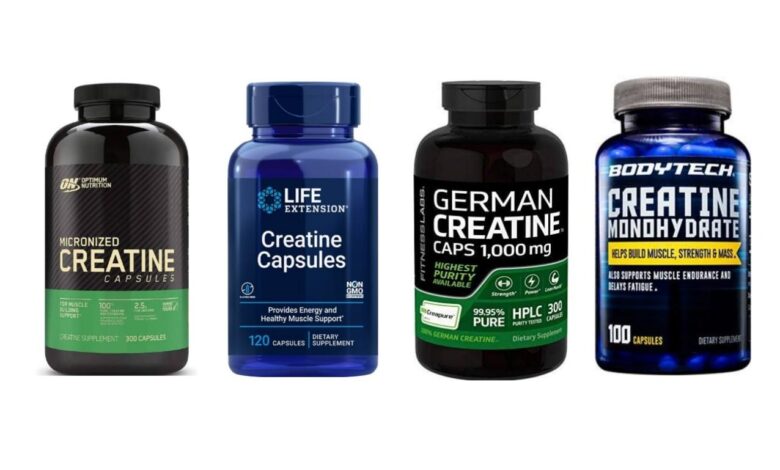What Happens When You Stop Taking Creatine?

Creatine is a nitrogenous organic acid located mostly in your body’s muscles as well as in the brain, chemically speaking, it shares many similarities with amino acids. Your body can produce it from the amino acids glycine and arginine.
Most people get creatine through seafood and red meat — though at levels far below those found in synthetically made creatine supplements. The body’s liver, pancreas, and kidneys also can make about 1 gram of creatine per day.
Taking creatine as a supplement is very popular among athletes and bodybuilders in order to gain muscle, enhance strength and improve exercise performance. Several factors affect your body’s creatine stores, including meat intake, exercise, amount of muscle mass, and levels of hormones like testosterone and IGF-1.
Your body stores creatine as phosphocreatine primarily in your muscles, where it’s used for energy. As a result, people take creatine orally to improve athletic performance and increase muscle mass.
People also use oral creatine to treat certain brain disorders, neuromuscular conditions, congestive heart failure, and other conditions. Topical creatine might be used to treat aging skin.
What are the potential benefits of taking creatine supplements?
Research shows that taking creatine supplements may:
• Improve your exercise performance.
• Help your recovery after intense exercise.
• Prevent and/or reduce the severity of injuries.
• Help athletes tolerate heavy training loads.
• Increase your fat-free muscle mass during training.
Because vegetarians have lower intramuscular creatine storage, they may see greater gains from taking the supplements. However, it may take longer to build up levels in the muscles.
Several studies show that users experience less incidence of cramping, heat illness/dehydration, muscle tightness, muscle strains/pulls, non-contact injuries, and total injuries/missed practices than those not taking creatine supplements. The effects appear to be sustained over time.
In addition, studies have noted that taking creatine supplements may aid in neurodegenerative diseases (such as muscular dystrophy, Parkinson’s, and Huntington’s disease), diabetes, osteoarthritis, fibromyalgia, disorders of creatine metabolism or transport, aging, brain health, and heart ischemia.
What Happens When You Stop Taking Creatine?
When you stop taking creatine, you may begin to experience drops in energy levels. It usually takes seven to 28 days to see energy effects depending on how much creatine you already have in your body.
You will also notice a drop in strength and performance as your body begins to adjust to the pre-supplementation serum and muscle creatine levels. This drop and adjustment by the body can result in side effects such as:
- Weight loss
- Fatigue
- Muscle weakness,
- Decreased natural creatine production
Are Creatine supplements safe?
Creatine is a safe supplement to use. Studies observe no adverse effects following 21 months of supplementation. There is also no evidence that creatine harms the liver and kidneys in healthy people who take normal doses. However, those with preexisting liver or kidney problems should consult with a doctor before supplementing.
In addition, the International Society of Sports Nutrition recently found no scientific evidence that short- or long-term use of creatine monohydrate (the best form of creatine) causes any harmful effects on otherwise healthy individuals. Nevertheless, always contact your healthcare provider before taking creatine or any supplements.





